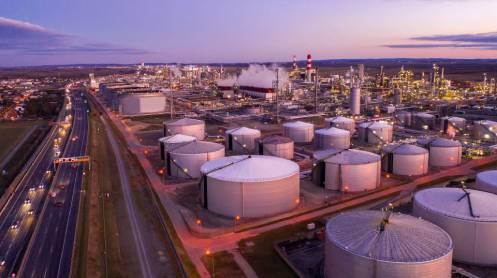Aims to diversify Karachi’s energy mix, drive down costs and reduce environmental impact
ISLAMABAD: K-Electric (KE), the primary electricity provider for Karachi, is advancing a strategic renewable energy plan that could reshape the city’s power landscape. The company has taken significant steps towards adding 640MW of renewable capacity to the local grid.
KE’s revised Requests for Proposals (RFPs) submitted include four renewable energy projects, all in line with open competitive bidding regulations established by the National Electric Power Regulatory Authority (NEPRA). These projects aim to diversify the city’s energy mix while driving down costs and reducing environmental impact.
The four projects encompass the Winder and Bela Solar Projects (150 MW), Dhabeji Site Neutral Hybrid Plant (220 MW), and the Sindh Solar Energy Project, divided into Site 1 (120 MW) and Site 2 (150 MW). These initiatives are part of KE’s larger effort to embrace renewable energy sources in order to reduce its dependence on more expensive thermal fuel and lower overall emissions.
Two of these projects, the 50 MW Project at Vinder and the 100 MW project at Bela, are particularly strategic. KE is planning to invest in new 132 kV transmission lines and grids running from Hub to Bela, a move aimed at enhancing the reliability of power supply to the Lasbela region in Balochistan.
NEPRA has scheduled a public hearing to review and make formal decisions regarding these projects. The Dhabeji Site Neutral Hybrid Plant, with an installed capacity of 220 MW, represents a pivotal milestone in KE’s renewable energy endeavours. This project will harness both wind and solar energy within a 50 km radius of K-Electric’s Dhabeji Grid Station.
The Sindh Solar Energy Projects at Sites 1 and 2 signify a collaboration between KE, the Sindh Energy Department, and the World Bank. These utility-scale solar projects are to be developed by private-sector entities through a competitive bidding model. An MOU for project development was inked in December 2021, and the government of Sindh has dedicated around 1,200 acres of land for their development.
Read Economic crisis affected performance in FY23: KE
Currently, these projects boast a combined capacity of 270 MW, with provisions for an additional 80 MW to be added at a later stage. Successful bidders will be tasked with the development and financial closure of these ventures.
In line with the broader national objective to increase the share of renewable energy in the energy mix by 2030, KE’s strategic initiative complements the government’s targets. The company’s Power Acquisition Programme aims to introduce 1,200 MW of renewable energy into its portfolio by 2030.
To ensure the smooth integration of variable renewable energy (VRE) into its network, KE is conducting a VRE Integration Study in collaboration with international consultants. This study will determine the optimal capacity for renewables while considering technical constraints and maintaining grid reliability. It will also identify necessary network augmentation efforts and explore strategies for maximising renewable utilisation to further reduce electricity costs for consumers in Karachi.
Previously, it was reported that due to the economic crisis, driven by factors like high inflation, increased policy rates and economic contraction, KE’s performance was significantly affected in the financial year 2023 as it recorded a loss of nearly Rs31 billion.
As a result of the economic woes, KE said it experienced a 7.3% reduction in units sent-out and a substantial decline in gross profitability by Rs15.72 billion.
Its exchange losses increased by Rs4.38 billion due to the devaluation of Pakistani rupee and there was an increase of Rs6.28 billion in impairment losses related to doubtful debts, influenced by high inflation and worsening economic conditions that decreased customers’ propensity to pay.
Increased finance costs by Rs19.45 billion, largely due to higher effective borrowing rates, led to a loss after tax of Rs30.90 billion, said KE in a statement.





